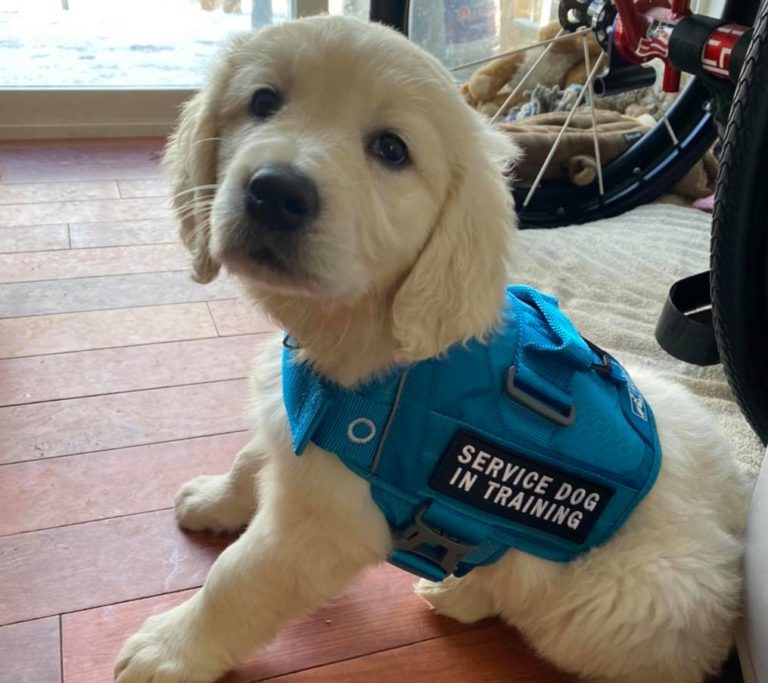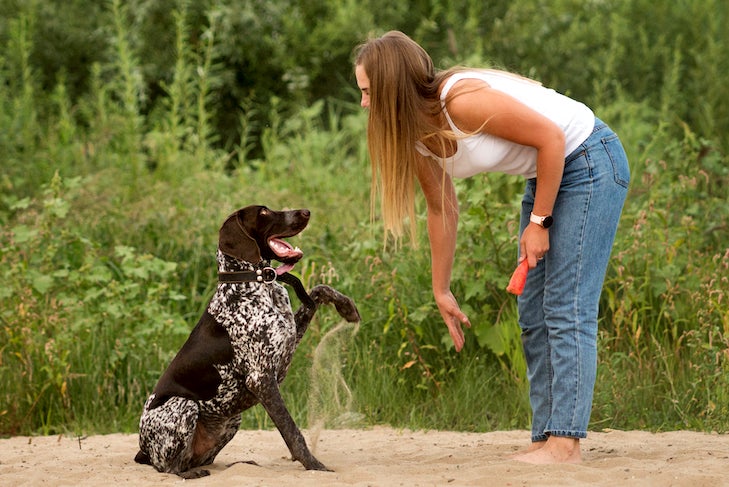Dog Training Charlotte NC: Your Course to a Well-Behaved Dog
Dog Training Charlotte NC: Your Course to a Well-Behaved Dog
Blog Article
Unlock Your Pet's Possible: Proven Dog Training Approaches for Success
Effective canine training is a nuanced process that pivots on understanding canine habits and employing scientifically backed methods. By integrating positive reinforcement, establishing clear commands, and prioritizing socializing, dog proprietors can grow an efficient relationship with their animals.
Understanding Canine Habits
Understanding canine habits is crucial for effective training and fostering a positive connection in between pet dogs and their owners. A detailed understanding of canine body movement, vocalizations, and social communications is vital for recognizing their feelings and needs. Pet dogs connect largely with non-verbal cues; as an example, a wagging tail may suggest exhilaration, while pinned ears can signify anxiety or submission.

In addition, environmental aspects play a significant function fit a pet's habits. Modifications in routine, new surroundings, or the visibility of strange individuals can cause tension or anxiety in canines. Identifying these triggers enables owners to minimize unfavorable responses and establish proper training methods.
Ultimately, a deep understanding of dog habits lays the structure for effective training methods, improving both habits and the general bond in between the pet dog and its proprietor. Dog training. This understanding is essential for fostering a well-adjusted, satisfied canine friend
Positive Reinforcement Techniques
Efficient training depends heavily on favorable support strategies, which have actually been revealed to produce substantial results in forming wanted habits in canines. This strategy includes rewarding a canine for displaying details actions, thus raising the probability that these habits will be repeated. Incentives can take various kinds, including deals with, praise, playthings, or play, depending on what encourages the specific canine.

It is vital to gradually terminate benefits as the dog discovers the behavior, transitioning to recurring support. This method keeps the actions gradually while stopping reliance on consistent incentives. By concentrating on favorable reinforcement, fitness instructors can cultivate a trusting partnership with their canines, advertising a cooperative and healthy and balanced training atmosphere that improves total obedience and performance.
Developing Consistent Commands
An essential aspect of effective canine training is the establishment of consistent commands. Consistency in commands is important for reliable communication between the pet dog and the fitness instructor. When commands are consistent, pet dogs learn to connect details words with desired behaviors, which speeds up the training process and great post to read enhances understanding.
To develop regular commands, it is essential that all relative make use of the very same terms and gestures. If one person utilizes "rest" while one more states "rest down," it can develop complication for the dog. Select clear, distinct words for commands and make certain everyone involved in the pet dog's training sticks to these options.
Strengthen commands through regular method, guaranteeing that the dog gets adequate possibilities to react correctly. When a dog efficiently follows a command, prompt positive reinforcement must follow.
Last but not least, hold your horses. Developing consistent commands takes some time and initiative. With devotion and clarity, you will certainly help your pet develop a strong understanding of assumptions, eventually causing a mannerly companion.
Socializing and Exposure
Socializing a canine is crucial for fostering a positive and well-adjusted buddy. This process entails revealing your pet to a selection of atmospheres, individuals, and other pets to develop their social skills and flexibility. Early socializing, ideally between the ages of three to fourteen weeks, is crucial, as it prepares for a pet's dog training voice buttons future behavior.
Throughout socializing, objective to give positive experiences in various setups, such as parks, busy streets, and homes with other pets. Introduce your pet to different stimuli, consisting of noises, sights, and scents, making certain that each encounter is satisfying. This direct exposure assists alleviate anxiety and anxiousness, leading the way for a more resilient canine.
Involving in controlled team play sessions with other pets can likewise boost social abilities, educating your animal suitable communications and limits. Focusing on socializing will considerably add to your canine's total happiness and actions throughout their life.
Conquering Common Training Challenges

Another frequent issue is disturbance. Canines might have a hard time to focus in unfamiliar or busy settings. Progressively desensitize your canine to distractions by beginning training in a quiet setting and slowly introducing even more stimuli as they come to be efficient (Dog training). Favorable support methods, such as deals with and appreciation, can maintain inspiration and focus.
Additionally, behavior issues like leaping or excessive barking can come to be aggravating. Address these by teaching alternative actions, such as sitting comfortably when greeting guests. Consistency and persistence are crucial; reinforce desired habits regularly and avoid scolding, which can cause complication.
Finally, recognize that each dog is special, and training timelines may vary. Dressmaker your method to your canine's individual needs, and seek specialist support if required. With Recommended Reading determination and the ideal strategies, getting rid of these obstacles can lead to a well-trained, satisfied canine buddy.
Final Thought
To conclude, unlocking a dog's potential requires a detailed approach that integrates an understanding of canine actions, the application of favorable support methods, and the facility of constant commands. Early socializing and exposure to varied environments better improve a pet dog's flexibility and self-confidence. By attending to common training obstacles with tailored approaches and persistence, a unified and participating relationship in between canine and trainer can be fostered, inevitably leading to a well-behaved companion with the ability of thriving in numerous situations.
Reliable canine training is a nuanced procedure that hinges on comprehending canine habits and using medically backed techniques.Understanding dog habits is necessary for reliable training and cultivating a positive connection between pets and their proprietors.Reliable training counts greatly on positive support methods, which have actually been revealed to generate significant outcomes in shaping desired habits in dogs. When commands are uniform, pets find out to connect certain words with wanted habits, which accelerates the training procedure and enhances understanding.
In final thought, opening a canine's possible demands an extensive technique that integrates an understanding of canine behavior, the application of positive reinforcement methods, and the facility of consistent commands.
Report this page